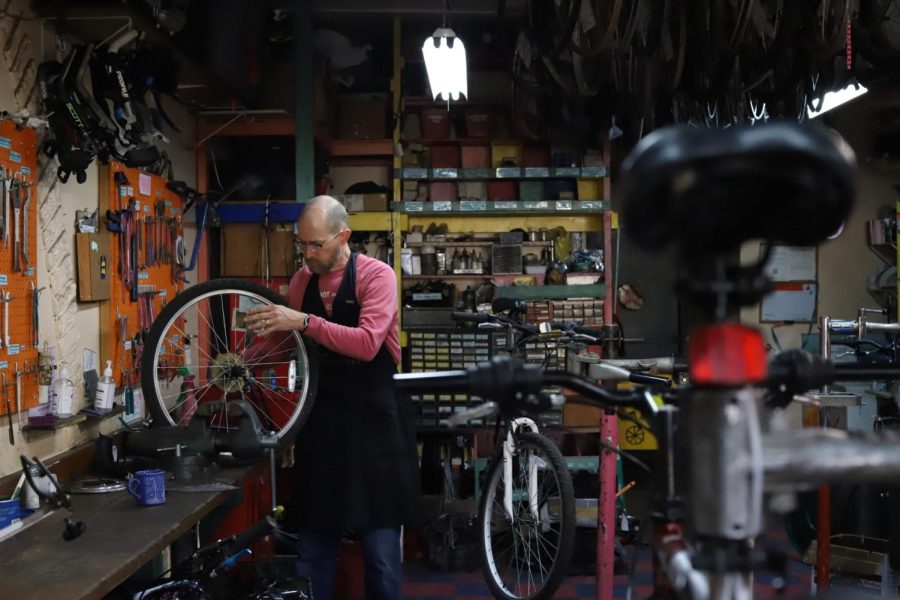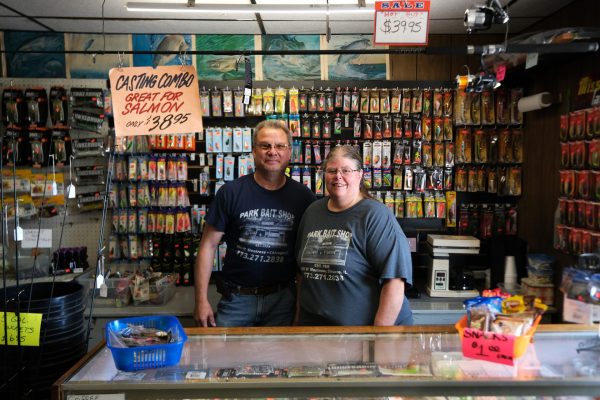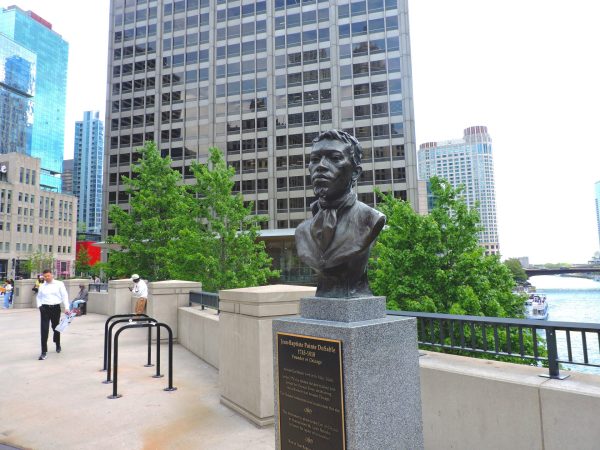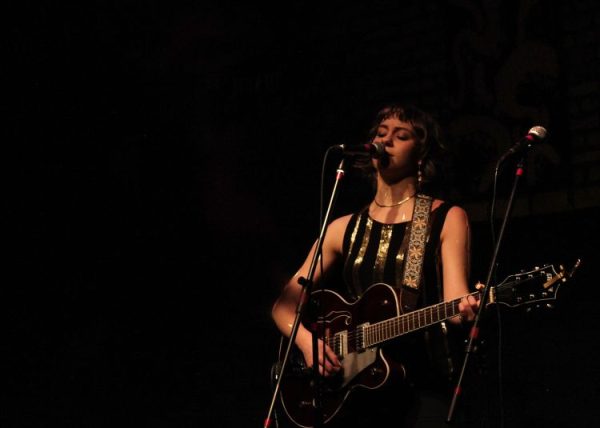Bikes for all: The Recyclery aims to produce bikes ethically and sustainbly
Credit: Jonah Weber
The Recyclery in Rogers Park accepts old bikes and restores them for future use.
Just a block north of the Howard Red Line in Rogers Park sits a bike shop with hard working volunteers and staff members. It is not just any bike shop: it doubles as a bike and bike parts recycle compound. The Recyclery Collective aims to teach folks how to fix bikes and obtain them in sustainable ways.
The Recyclery is a nonprofit run by a mix of staff members and volunteers. The staff members build and repair bikes that are sold to create revenue for the collective, classes and administrative tasks. The volunteers work on bikes that are given away and donated and support the shop during operating hours.
An average road bike in 2023 can cost anywhere from $350 to $700 and are often sold by a large company. Cost of repairs can vary. All bikes that are sold at the Recyclery are worked on by their lead mechanic.
The shop also has a variety of public programs. A fairly new program was started by Kingston Smart-Nalli. It is called “FTWN-B,” which stands for “Femmes, Trans, Women and Non-binary.”
“The mission behind it is to recognize the fact that the biking world is very cis male dominated,” Smart-Nalli said. “FTWN-B” works to create a more inclusive, welcoming and educational space for folks who don’t identify as cis white males.”
Smart-Nalli described the biking community and bike repair world as male dominated, specially geared towards cis-gendered straight men.
“Like entering into bike repair, and like cycling in general is hard because there’s a lot of gatekeeping. I faced it when I was first trying to get into bikes until my partner was like, ‘I’ll teach you,’” Smart-Nalli said.
Education regarding cycle repair is a major aspect of the Recylery’s mission.
“My partner taught me what they knew, and then I did more research from there,” Smart-Nalli said. “But not everyone has that. You know? So, I got to get acquainted with the Recyclery, and I got to start this program where I can teach people in my community like, what I know, and just like, create a community of like, future bike mechanics.”
Currently, the Recyclery is working on a youth donation program with an elementary school in the area to match bikes with first graders. This program is led by Tzippora Rhodes, the freecyclery coordinator and youth instructor. Rhodes first got involved with bike-centered nonprofits after hers got stolen when she first moved to Chicago.
Rhodes spoke about their involvement with the collective while repairing a donated bike.
“For me, there’s always like a human side to it like how resourcefulness impacts people in people’s lives and that you’re going to be less reliant on giant industrial complexes and things like that and more like a sort of a community scale of getting your needs met.” Rhodes said.
The Recyclery offers bikes for sale that are sustainably put together and ethically sold.
Sophomore political science major Aurelia Flynn shared her experience with biking in Chicago, specifically with Divvy bikes.
A Divvy bike rental costs $1 to unlock the bike and $0.42 a minute.
“When it’s nice out, shoot I’m trying to be outside, and sometimes I feel like walking, especially because I live on Fullerton, can be a little too strenuous,” Flynn said. “If I’m trying to get by the lake, a bike is the quickest way to do that.”
As it warms up, accessibility to the lake is much more important to DePaul students. Flynn said biking is an affordable way to travel to and from the beach.
“Divvy bikes are one of the most affordable ways to get around, especially when it’s warm out,” Flynn said. “I’m not always trying to take the train, and sometimes it can drag to take the train, so bikes are a way faster, efficient, and economic way to get around.”
Flynn plans on investing in a bike for the summer and plans on checking out the Recyclery.







